Albania’s first Gender Datathon spurs youth and activists to spotlight gender inequalities and drive change
Date:
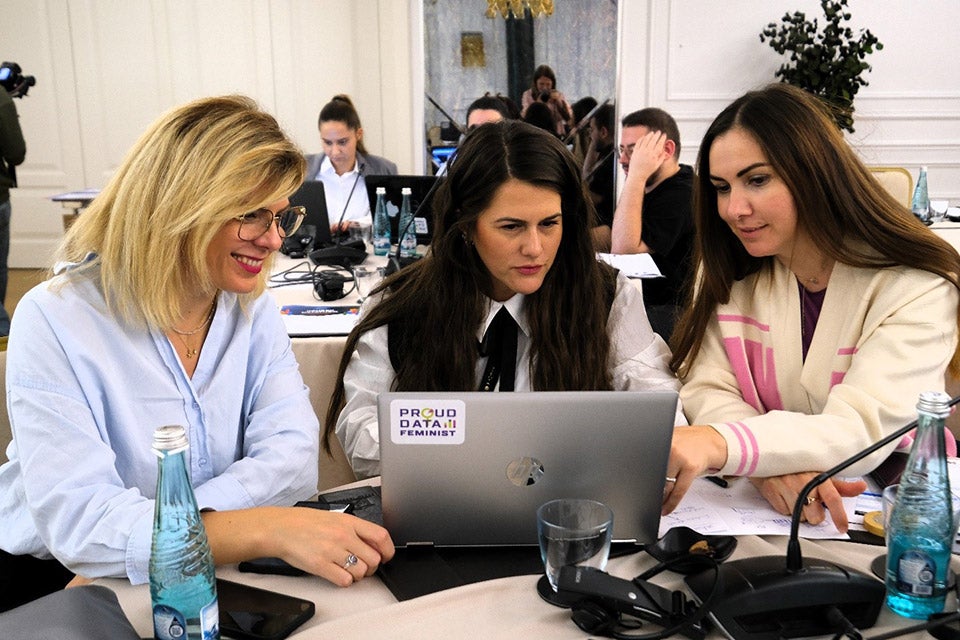
Tirana, Albania – Alkida Lera, a second-year information technology student at the European University of Tirana (UET), was used to sifting through and trying to make sense of massive amounts of information throughout her studies.
But she says learning how to pinpoint the best and most reflective data, and visualize it, is a key skill she learned at Albania’s first-ever Gender Datathon, where her UET team even won third prize for their project on women’s participation in science, technology, engineering and mathematics (STEM) fields.
“In the Datathon, we learned how important it is to extract the right data from massive information and how to use a specific tool to visualize those data. This knowledge is invaluable for students as we often deal with data in our projects,” she says.
From 2–4 October 2024, Albania hosted its first-ever Gender Datathon, uniting researchers, students, activists, data analysts and members of women’s rights and civil society organizations to foster data literacy and drive evidence-based solutions to advance gender equality.
“In today’s data-centric era, data literacy is essential for informed decision-making, effective policy formulation and accountability. It empowers decision-makers to rely on evidence, leading to better policies and greater transparency,” highlighted Michele Ribotta, UN Women Representative in Albania. “Whether you’re an urban planner, social worker or health professional, data should drive progress towards gender equality.”
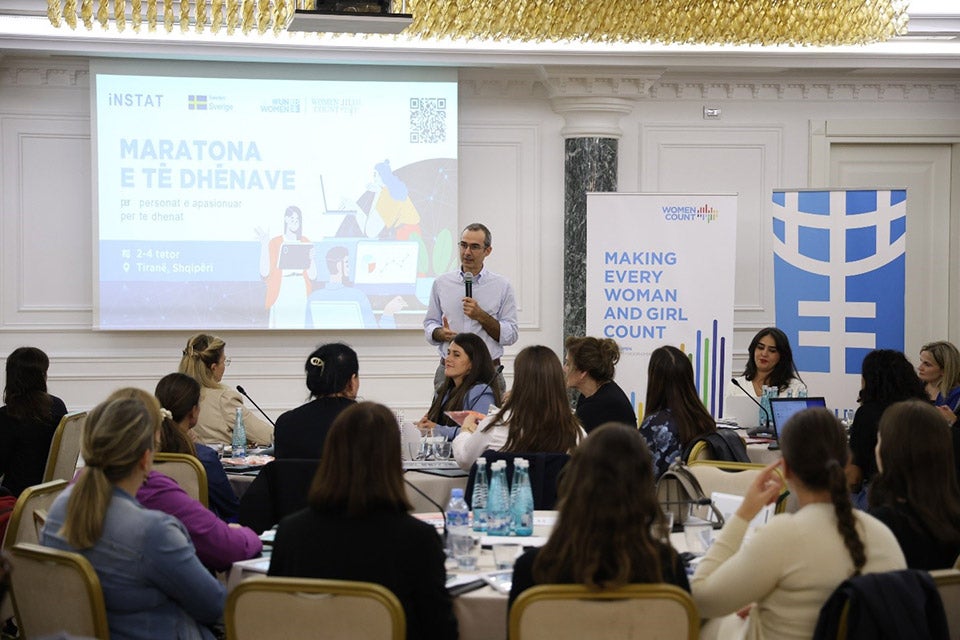
The Gender Datathon journey started with an open call for applications attracting over 140 change-makers from across Albania, all eager to elevate women’s voices through data-driven initiatives. Seventy shortlisted applicants then engaged in a series of insightful webinars on data feminism, gender data sources, analysis and visualization by experts and mentors. Ultimately, 50 data enthusiasts were selected for an in-person Gender Datathon to craft data products addressing gender inequalities.
“This competition opens a new window, offering fresh perspectives and realizing that everything in life is rooted in data,” noted Elsa Dhuli, General Director of the National Institute of Statistics in Albania.
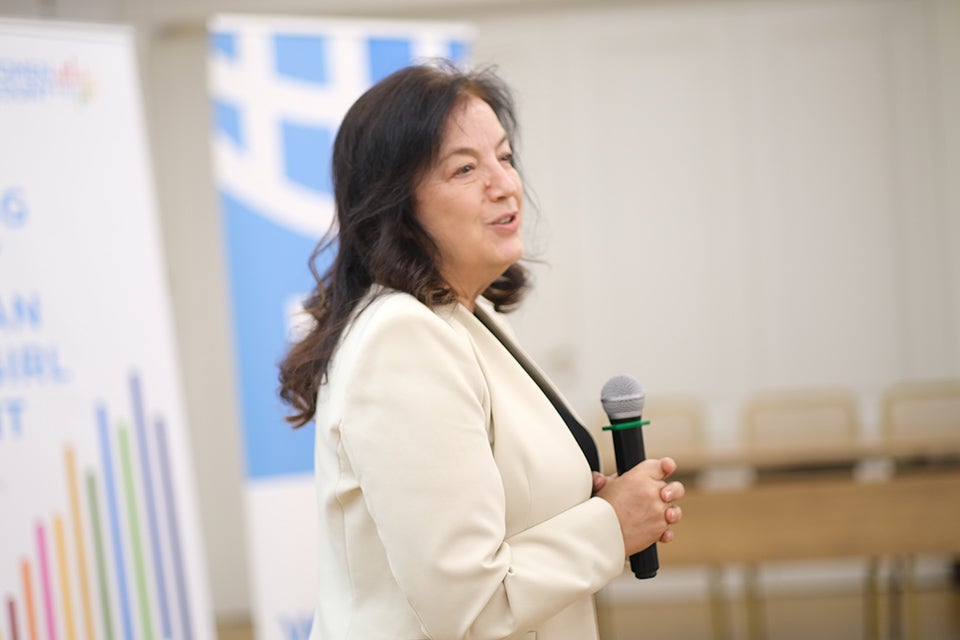
Through collaborative data exploration, participants learned to navigate, analyse, interpret, visualize and communicate data using tools like Tableau and Canva. They also enhanced their practical skills in data-driven storytelling, focusing on gender issues and women’s rights.
“Meaningful change starts with data,” underlined Ala Negruta, UN Women Regional Gender Statistics Specialist, during her opening remarks. “Evidence-based discussions, whether in policy, family or community, are crucial for advancing gender equality and human rights.”
Guided by experts on gender data and statistics, data storytelling and visualization, participants explored official statistics and open data sources. They focused on topics like technology-facilitated violence against women, women’s political participation, gender-responsive budgeting and women in STEM, among others. Working in groups, they crafted data-driven projects unveiling gender inequalities and proposed solutions to drive change.
The “Empowerment” team of students from UET won first place for their project challenging gender stereotypes against women drivers by analysing available data and conducting their own survey.
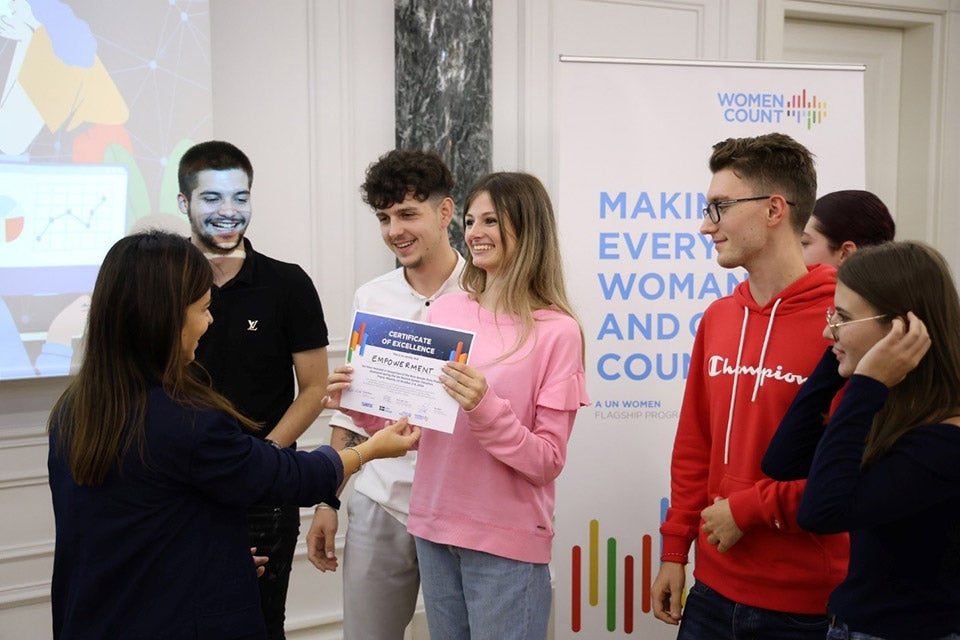
“We wanted to see if the stereotype of women as bad drivers is actually true,” explains team member Mirfat Saracini. “We searched for data but couldn’t find them, so we made our own survey. From the survey, we found that 21% of men had severe accidents versus only 3% of women.”
An “Access” team, focusing on technology-facilitated violence against women, and a “Prizma” team, addressing gender-responsive budgeting, jointly secured second place.
“Budgets are numbers and numbers are facts. Facts can change realities that improve women’s lives and advance gender equality in society,” says Viola Cikalleshi, from the “Prizma” team. “Working all the time in the field, doesn’t leave much time to process data, so this was an opportunity for us to process what we do in the field and to transform data into a tool for achieving gender equality and making changes.”
For Keris Babliku, from the UET team, which snagged third place, the journey has been transformative: “I really loved the workshops we had, the orientation that the mentors gave us, leading us to the path of exploring data assets in the most beautiful way and visualizing them and show the key messages in a certain and clear way.”
For example, her team’s data visuals emphasize how men have comprised more than 60% of students enrolled in ICT course in Albania over the past few years, versus less than 40% who are women.
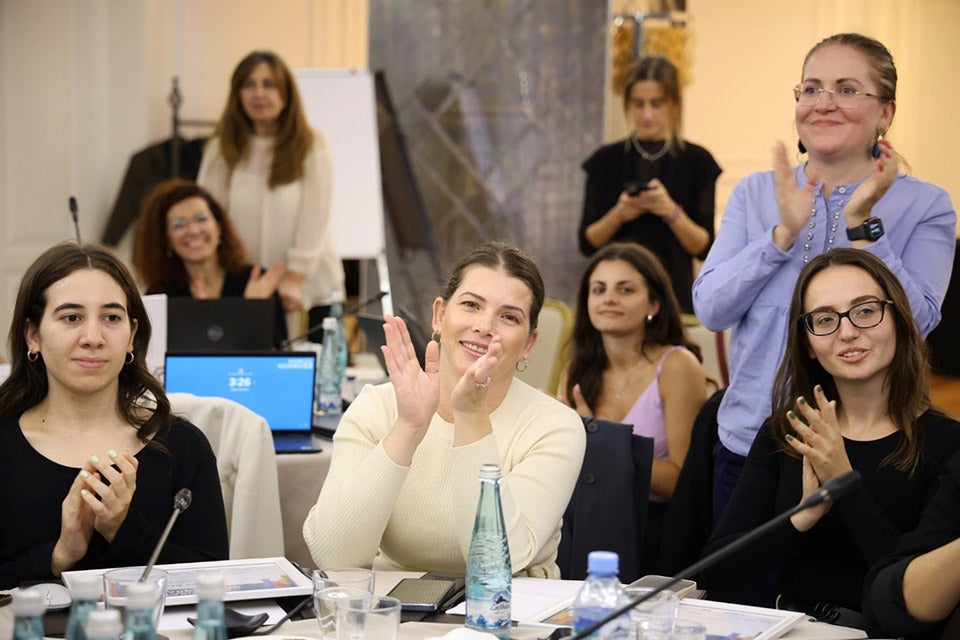
The Datathon also provided a platform for networking and collaboration with various professionals and data visualization experts.
“Despite being a gender equality researcher and activist for two decades in Albania, working alongside experts and other colleagues made me realize the importance of data-driven storytelling to advocate for gender equality and social justice,” said Eriada Çela, a lecturer at Aleksander Xhuvani University and a prominent gender activist.
While their journey has just begun, the participants are committed to advancing these initiatives. Fuelled by a strong desire to drive change, they will continue refining their data projects throughout 2024 with continued mentorship support from UN Women.
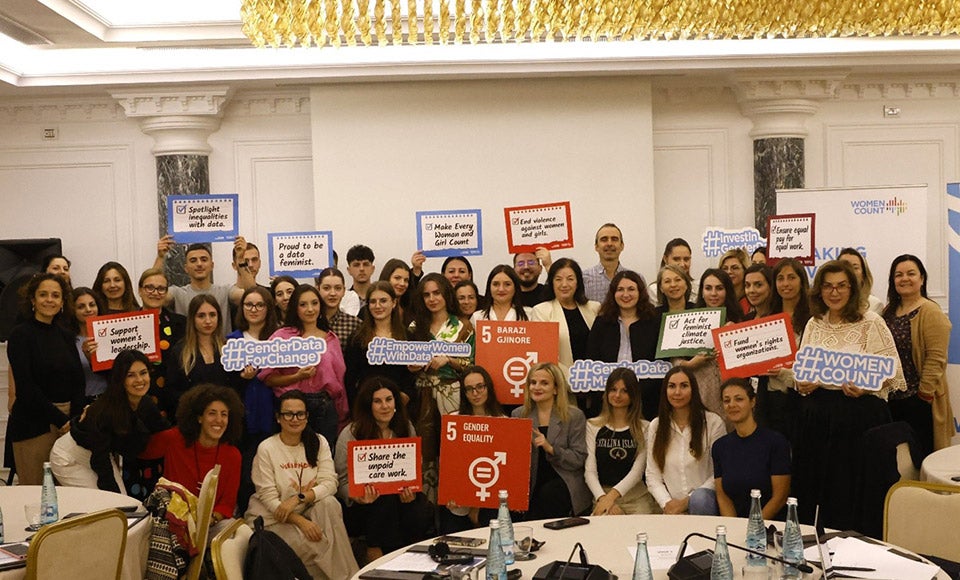
The Gender Datathon is a collaborative initiative of the UN Women Country Office in Albania, the National Institute of Statistics in Albania and the UN Women “Making Every Woman and Girl Count” regional programme, made possible by the generous support of the Government of Sweden, through direct support to the implementation of UN Women Albania Strategic Note and the regional programme “Making Every Woman and Girl Count”.